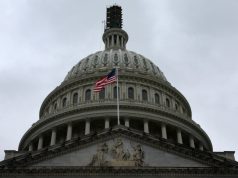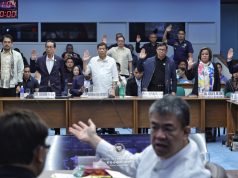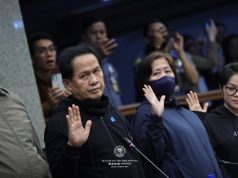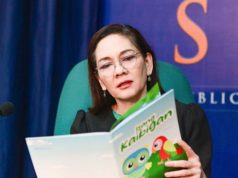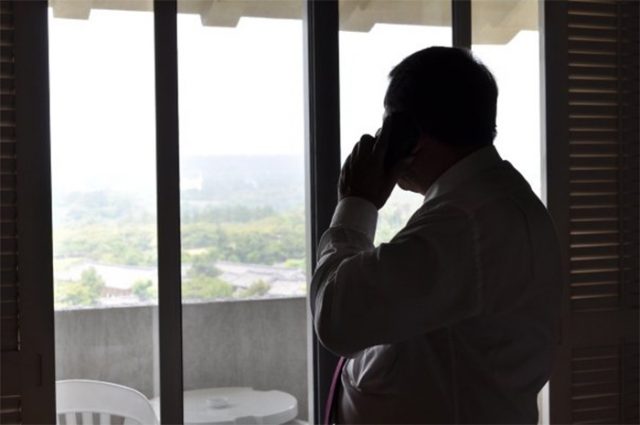
The recent passing of former senator Edgardo Angara has been met with numerous testimonials from both colleagues and constituents on his contributions to governance.
When news of Angara’s passing broke out, many remembered the late former senator’s contributions.
An outpouring of thanks and admiration
US Ambassador Sung Kim was among those who publicly expressed their thanks to Angara’s projects.
My thoughts are with the family of Senator Edgardo J. Angara, who helped foster US-PH ties through the creation of the Fulbright-Philippine Agriculture Scholarship Program and left a lasting legacy in Philippine education. pic.twitter.com/1uIzNL1NbY
— Ambassador Sung Kim (@USAmbManila) May 14, 2018
Angara was appointed special envoy to the European Union in May 2017 by President Rodrigo Duterte, a year before his death. Duterte thanked Angara for being his “defender” while paying his respects.
One private citizen meanwhile thanked the late former legislator for helping him finish his education.
I was able to finish college because of the DOST Scholarship that was offered when I entered college. I will be forever grateful to benefit from the RA 7687 that you co-authored. Salamat at paalam Ka Edong Angara! Rest in peace dear senator! #IskolarNgBayan #RA7687 #Angara
— Mike Devaras (@morsmagistri) May 14, 2018
One tweet meanwhile lauds Angara for something other than his efficiency as a lawmaker.
Key role of Ed Angara in our current PH history – how he ended up validating EDSA 2 through his diaries, which he allowed PDI to publish, which then were used as basis by SC to declare that Erap resigned – most consequential use of “judicial notice” perhaps in SC history
— oli r. (@ohlistic) May 14, 2018
The publication of the “Angara Diary” was taken into account by the Supreme Court in deciding on the validity of former president Joseph Estrada’s departure following the second EDSA uprising.
According to the high court in Estrada v. Desierto, the account written by Angara, who served as Estrada’s executive secretary for a brief period in 2001, revealed Estrada was intent on relinquishing the presidency.
His legacy
A product of the University of the Philippines College of Law, Angara became one of the youngest delegates to the 1971 Constitutional Commission, representing Quezon province.
Along with some of his law school classmates, he later founded ACCRA Law, one of the biggest law firms in the country.
According to his Senate profile, Angara would go on to lead some major law organizations in the 70’s: Philippine Bar Association in 1975, the Integrated Bar of the Philippines in 1979, and Association of Southeast Asian Nations Law Association in 1980, as its founding president.
From 1981-1987, he served as president of the University of the Philippines.
In the eulogy by the University of the Philippines on its website, among Angara’s contributions to the university were securing fiscal autonomy and raising funds from alumni.
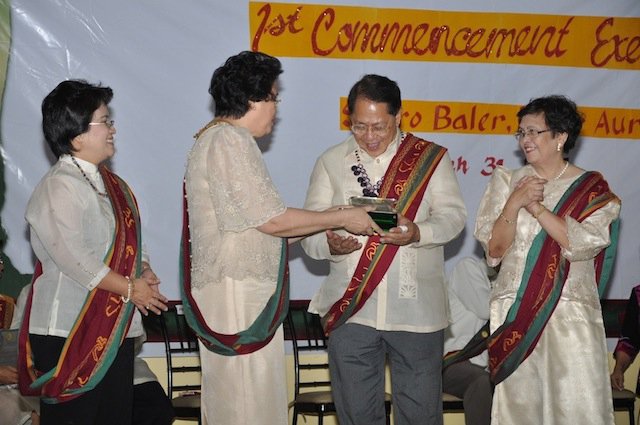
He served a total of 24 years as senator, his first stint from 1987 to 1999, and his second from 2001 to 2013. He was senate president from 1993 to1995.
Angara was also Department of Agriculture secretary from 1999 to 2001.
He is credited for authoring numerous laws, including those which created the TESDA and CHED, the Senior Citizens’ Act which allowed price discounts for the elderly, the National Health Insurance Act which paved the way for the creation of Philhealth, and the Agriculture and Fisheries Modernization Act which provided farmers and fishermen with better utilities.
Not everyone, however, has participated in the celebration of Angara’s career.
One Twitter user has claimed “historical amnesia” in the collective commemoration, pointing to some of Angara’ criticized initiatives.
Various groups opposed Angara’s RA 9490, which brought the Aurora Pacific Economic Zone and Freeport, or APECO, to life. According to critics, several native occupants were displaced as a result of the transformation of the affected area.
Angara defended APECO, claiming it created job opportunities.
In 2012, Angara’s Senate Bill 2997, which was written to spur investment in the water sector, was opposed by labor and consumer groups.




